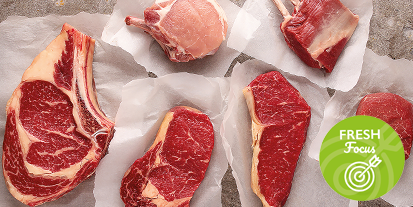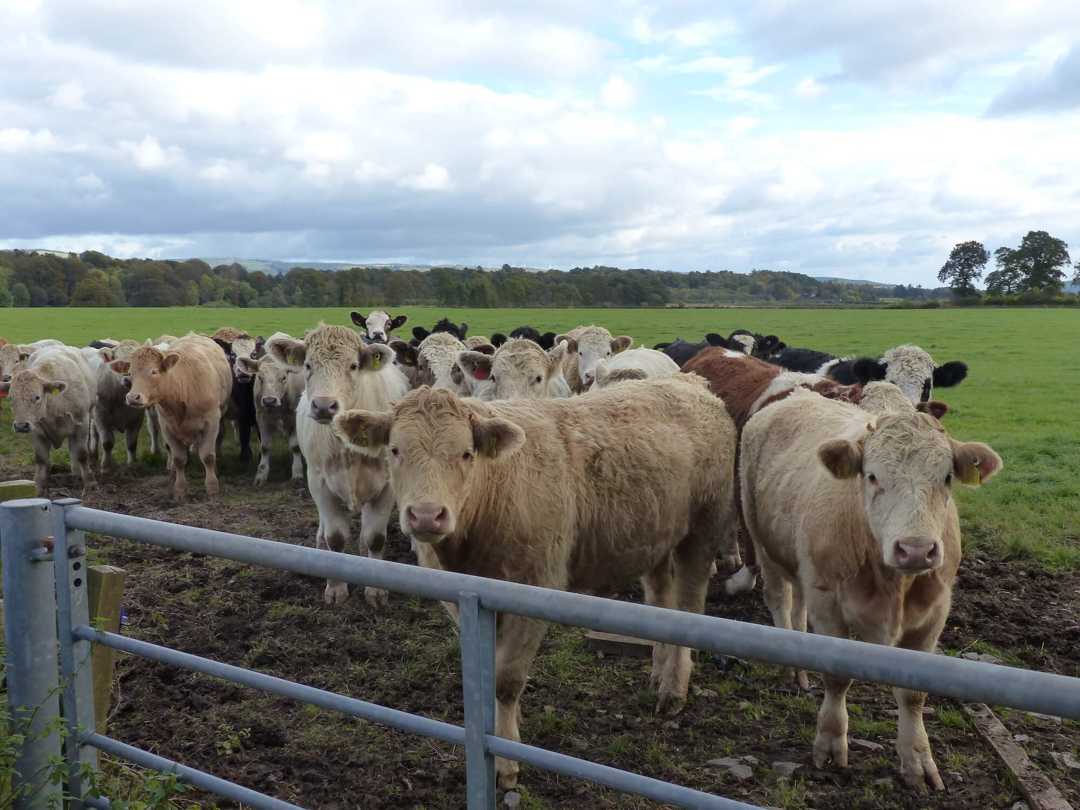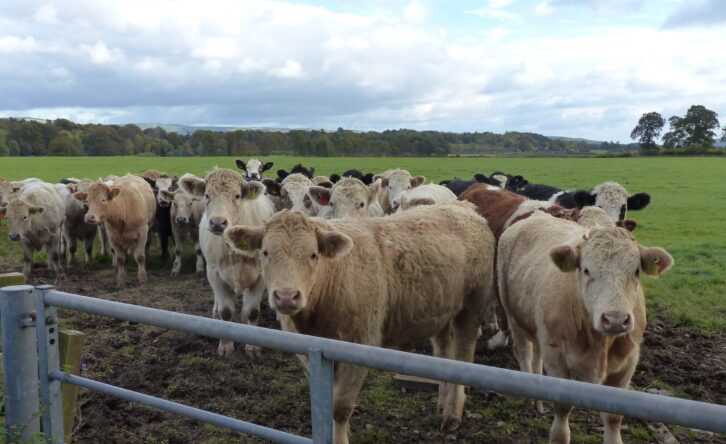Making Ethical Choices: A Chef’s Guide to a More Sustainable Meat Selection
In recent years, there has been a growing awareness of the environmental and ethical impacts of meat production. As conscientious consumers increasingly seek ethically sourced options, chefs are compelled to navigate a landscape where the principles of sustainability and culinary excellence intersect. Here are some insights into how chefs can make informed decisions when selecting more sustainable meat for their menus:

Understanding Certifications and Labels
Certifications such as QMS (Quality Meat Scotland) signify adherence to rigorous standards of animal welfare, environmental stewardship, and sustainable farming practices, as well as Red Tractor which gives full traceability and compliance with UK regulations. Familiarising one-self with these labels empowers chefs to align their values with their sourcing decisions, ensuring that the meat they serve upholds ethical and environmental principles. You can find the Campbell Brothers guide to the fresh food industry’s most established food and drink accreditations, HERE.
Prioritising Local and Regional Producers
Opting for trusted supplier who source from local farmers and producers not only reduces the carbon footprint associated with transportation, but also fosters community resilience and economic vitality. By forging long-standing partnerships with nearby farms, chefs can gain access to fresh, seasonal meat produced with care and attention to animal welfare and farming practices.
Embrace Nose-to-Tail Cooking
Embracing nose-to-tail cooking is a sustainable approach that minimises waste and maximises the use of the whole animal. Utilising lesser-known cuts and offal, can create delicious and inventive dishes while reducing the environmental footprint of meat production. Nose-to-tail cooking honours the animal and celebrates its entirety, offering consumers a more holistic and sustainable dining experience.
Seeking Transparency and Traceability
Transparency is essential in building trust with consumers. Transparency can be fostered by clearly communicating sourcing practices and highlighting more sustainable meat options on their menus. By sharing the stories behind their ingredients, chefs invite diners to participate in their commitment to sustainability. At Campbell Brothers, we believe in transparency of our practices and traceability of our products and are always happy to share this information with our customers. You can read our page all about sourcing HERE and as always you can ask your account manager for more information!
Educating Staff and Guests
Educating kitchen staff about the importance of sustainability empowers them to make informed decisions when sourcing ingredients and preparing dishes. Similarly, educating consumers about the environmental and ethical considerations of meat production encourages them to support more sustainable farming practices by choosing responsibly sourced options.
Continuously Evolving and Improving
Sustainability is a journey, not a destination. Chefs should continuously evaluate their sourcing practices, stay informed about industry developments, and remain open to adopting new more sustainable practices in their kitchens. By embracing a mind-set of continuous improvement, food industry individuals can play a vital role in advancing sustainability within the culinary industry.
In conclusion, more sustainable meat selection is not merely a culinary consideration but a moral imperative. By prioritising ethical sourcing, transparency, and innovation, individual in the food industry can leverage their influence to promote sustainability within the meat industry and contribute to a more ethical, environmentally conscious food system.
Our team are on hand to support you and discuss your requirements in order to provide the best fresh ingredients for your dishes.
Follow us on social media for regular updates on Instagram, LinkedIn, X and Facebook




